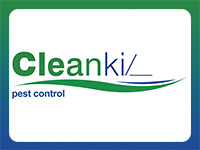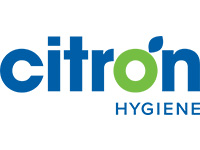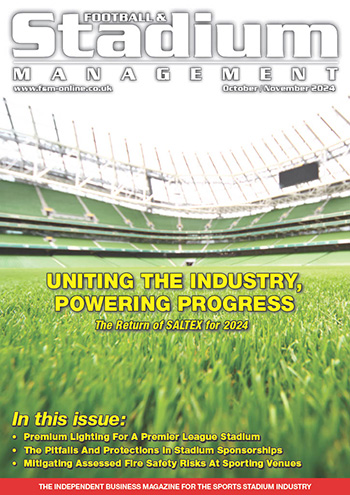Infection Control Measures Stadium Facility Managers Should Implement To Help Stay COVID‑19 Secure
 Over a year has now passed since the first Coronavirus-19 (COVID-19) case was recorded in the UK, with the pandemic continuing to have a substantial impact on all industries. For both indoor and outdoor sport venues, health and safety measures need to be strictly enforced to ensure employees, sportspeople, and spectators are able to function effectively in a COVID secure space. This makes the role of a stadium facility manager more vital than ever.
Over a year has now passed since the first Coronavirus-19 (COVID-19) case was recorded in the UK, with the pandemic continuing to have a substantial impact on all industries. For both indoor and outdoor sport venues, health and safety measures need to be strictly enforced to ensure employees, sportspeople, and spectators are able to function effectively in a COVID secure space. This makes the role of a stadium facility manager more vital than ever.
With the re-opening of stadia to spectators in England moving forward from May 17th, subject to successful pilots in April, there is naturally a lot of excitement amongst fans. However, there will also be trepidation amongst many in the population, particularly with other countries already experiencing third waves of the virus. Within stadia social distancing will remain in place for now, with capacities limited to 10,000 people or 25% of total seated capacity, whichever is lower. Therefore, stadium facility managers must make sure they follow strict measures to keep the risk of COVID-19 to a minimum and create a safe, welcoming environment for the visiting spectators.
Here, Enrico Allegra, Lead Microbiologist at Inivos – UK infection control and decontamination providers, outlines the measures stadium facility managers and sports venue managers can put into place to help their venue remain COVID-19 secure.
What are the challenges faced by stadium facility managers during COVID‑19?
Since the beginning of the pandemic, a stadium facility manager's role – to ensure the safe and smooth running of a stadium or sports venue – has never been more important.
Following the outbreak of COVID-19, stadium facility managers’ roles have drastically changed. They have been forced to adapt to ever-changing guidelines, and after many months of closure, preparations now enter the final stages to start to reopen for fans – as long as they meet a series of trials to assess safety measures.
One of the biggest changes has been adapting from previously managing between hundreds and thousands of fans in a stadium, to rapidly implementing new social distancing policies, health and safety measures, and carefully managing a lower occupancy to help minimise the spread of the virus.
In the coming weeks and months, sporting venues and stadiums will be able to reopen and hopefully allow increasing numbers of spectators to watch. However, this comes with a risk as increasing the number of people in sporting venues can increase the risk of spreading COVID-19 due to more people interacting with each other. However, there are many ways that stadium facility managers can help reduce this risk - one being decontamination.
How decontamination measures can help reduce risk
Effective decontamination is crucial to limiting the spread of the virus. COVID-19 is highly contagious and can quickly spread throughout a stadium or sports venue in a short matter of time. Outdoor areas seem to present less of a challenge, however in larger stadia there are many indoor and outdoor areas where fans will pass.
The risk of infection spreading is heightened because SARS-CoV-2, the viral pathogen which causes COVID-19, is mainly transmitted via respiratory droplets that have the potential to linger in the air or on surfaces for prolonged periods of time. According to the World Health Organisation (WHO), up to 80 percent of COVID-19 infections are asymptomatic or only present mild symptoms. This means that the virus can spread quickly as many people do not realise that they are infected and continue to interact with others - unknowingly passing on the virus.
This is particularly important when considering indoor sports club houses and areas within a stadium which have little ventilation, such as bars, changing rooms, stairwells, and corridors.
Therefore, to meet necessary health and safety requirements, stadium facility managers must implement robust measures to ensure a COVID-19 free environment for any staff, sportspeople, or members of the public who enter the venues they manage. To do this, facility managers should enlist a proactive approach to decontaminating all indoor spaces and outdoor spaces where possible.
Whilst manual deep cleaning is an important part of containing the spread of virus, it is simply not enough on its own. This is because it has become increasingly apparent that manual cleaning alone is not capable of reducing contamination to a safe level due to unavoidable human error. To combat human error, more robust measures need to be in place to reduce the risk of viral transmission.
Unlike manual cleaning and hygiene measures, decontamination systems use hydrogen peroxide vapour (HPV) or ultraviolet-C (UV-C) technology which can decontaminate an entire space from pathogenic micro-organisms within a matter of minutes or hours. HPV and UV-C, although used in slightly different settings, have both been demonstrated to be highly effective at decontaminating COVID-19 and other harmful pathogens within a short space of time.
How different decontamination technology works
HPV technology works by filling an area with hydrogen peroxide in the form of vapor where UV-C works by shining light directly onto a specific area. Although in slightly different mechanisms, they both work by interacting with the internal genetic material of micro-organisms by breaking down DNA/RNA strands which will in turn lead to cell lysis and cell death. This method can effectively reduce harmful pathogens by up to 99.9999% (>log 6).
UV-C has a faster decontamination time compared to HPV, which makes it particularly useful for spaces which need to be decontaminated more regularly than others, such as changing rooms, bars, and communal toilets.
HPV technology, on the other hand, has a longer decontamination cycle but is able to reduce contamination level from hard-to-reach areas such as folds and corners of material, as well as the room itself. This could be implemented at the end of each day in small spaces such as changing rooms, to fully decontaminate every single surface and hard to reach spaces which may harbour virus particles.
Both technologies can be operated remotely, giving maximum safety to the end user.
Ultra-V Connect technology – which emits UV-C – also uses a remote-controlled device which eliminates micro-organisms in as little as eight minutes. The technology is designed to be fixed to the ceilings of rooms for convenient regular decontamination. Therefore, Ultra-V Connect could be particularly useful for the indoor spaces in sports venues and stadiums.
The importance of assessing the venue
To ensure the safety and smooth running of a stadium or sports venue, facility managers should perform a full risk assessment to understand, and subsequently mitigate, all COVID-19 associated risks. For example, stadium facility managers should try to identify the main areas which could pose a risk to those using the space. Communal areas, such as changing rooms, bars, doorways, and toilets, all offer opportunities for the virus to spread. It is therefore essential that facility managers help to coordinate ways to reduce this risk.
Installing multiple hand sanitiser stations, regularly decontaminating rooms, the use of face masks where social distancing is not possible and understanding the movement of people within a building can help keep people safe and protected by minimising the environmental contamination level.
Understanding the movement of people in a venue is beneficial for infection control because stadium facility managers can keep track of the most occupied areas in a building, and the times when spaces are vacant. This will inform them as to how often a space needs decontaminating, and when it should take place to minimize disruption as much as possible.
Looking to the future
The COVID-19 pandemic has tested the limits of stadiums and sports clubs across the UK – from small local teams to national sports teams. Ultimately, by implementing regular decontamination, hand hygiene policies, and maintaining social distancing, stadium facility managers can help keep themselves, sportspeople, and spectators safe. By strictly adhering to these recommendations, they will be able to reduce the risk of infection and build a safer environment.
Click the article to enlarge it.


















































